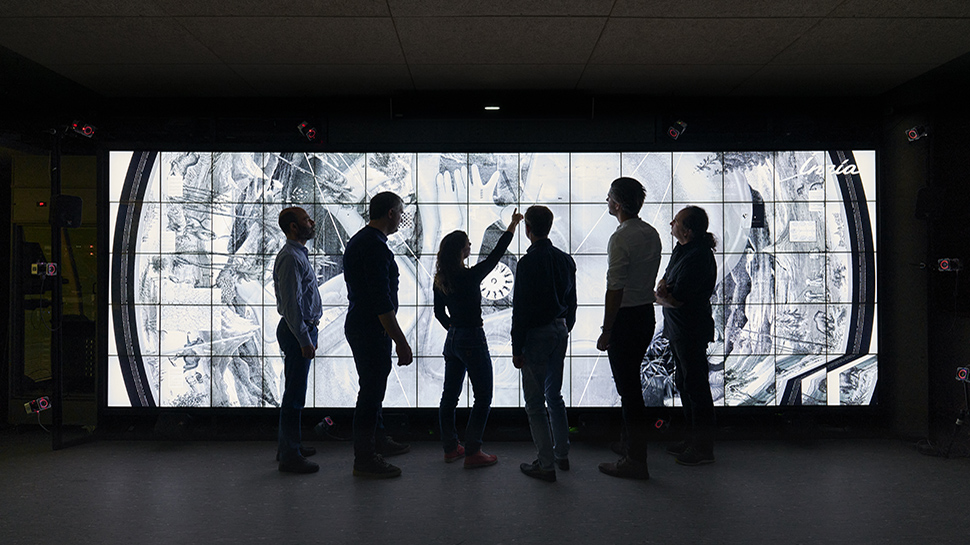NASA, in collaboration with a team of international scientists, researchers, designers, and artists led by French engineer Benoit Faiveley, is set to send another time capsule to the moon.
The project, titled "Sanctuary on the Moon", is part of NASA's ambitious Artemis CLPS program and enjoys the support of UNESCO and the patronage of French President Emmanuel Macron.
Sanctuary on the Moon aims to engrave 24 sapphire discs with "the very essence of humanity". The discs, currently being engraved at the French Alternative Energies and Atomic Energy Commission (CEA), will contain a diverse portrait of our species in micropixels – up to 7 billion per disc.
An inspiration for generations to come
This will be the first time the collective human 'recipe' in the form of male and female genomes will be taken to another world, and the project aims to pass on an intelligible message to future generations of humans - and other intelligent life forms who might happen to stop - by using universal symbols of our knowledge and culture. The plan is to tell the story of “who we are, what we know, and what we do” and the discs will include examples of mathematics, culture, paleontology, art, and science, along with the human genome.
The moon, with its ancient surface impervious to natural disasters, is viewed as being the ideal location for this archival time capsule which will be housed in a container designed to endure the harsh lunar conditions for many years, meeting all the space certifications required by NASA.
Joel Kearns, NASA’s Deputy Associate Administrator for Exploration in NASA’s Science Mission Directorate, expressed his excitement about the project. “We are delighted to take Sanctuary to the Moon”, he said. “We believe that this internationally curated repository of knowledge on the Moon will serve as an inspiration today and for many generations to come.”
The multidisciplinary Sanctuary team includes 11 renowned scientists, engineers, astrophysicists, paleontologists, cosmologists, and artists. The project has also received support from organizations such as CNES, CEA, INRIA, BCGSC, and UNESCO.
You can find out more about the Sanctuary on the Moon project here.





0 Comments
If you have any doubts, Please let me know